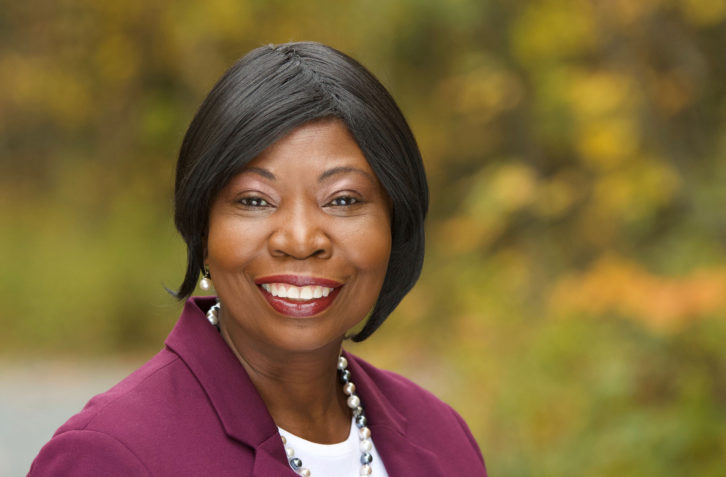High hopes for HRM’s new women’s advisory committee
Recruitment process aims to attract diverse voices to advise council on matters of gender

caption
Sylvia Calatayud is with the YMCA's Centre for Immigrant Programs and wants to see the new women's advisory committee make real change from the bottom up.Halifax will soon begin its search for members to sit on the city’s new women’s advisory committee, with the goal of getting women from many different backgrounds involved.
On Tuesday, regional council approved a staff board to review applications and present them to the executive standing committee.
The women’s advisory committee will report to the executive standing committee of council. Its purpose is to advise council on matters of gender as it relates to actions made by the municipality. The goal is to involve more women in municipal government.
While it’s typically the clerk’s office that handles recruitment, HRM’s managing director of diversity and inclusion, an advisor from diversity and inclusion, and the chief administrative officer or their designate are also involved. Related stories
“The more people we have involved with setting up the committee, the greater chance that we’ll have to get some good recruitment there and we’re going to be able to reach out to more communities to get a diverse composition,” Coun. Lisa Blackburn said in an interview.
The committee’s terms of reference state that women with disabilities and representatives from African Nova Scotian, Indigenous, LGBTQ2S+, immigrant, and francophone/Acadian communities should be on the committee.
Having women from urban, suburban and rural areas is also included.
“We’re going to cast a wide net and get some good strong women,” Blackburn said.
Tammy Findlay is an associate professor of Canadian political studies at Mount Saint Vincent University. She believes who’s on the committee matters.
“I was really glad to see that they thought about intersectionality,” said Findlay. “It’s not just about gender, but how gender intersects with other identities.”
For Findlay it’s also an important opportunity for people from community and advocacy groups to have their say.
She believes another positive thing the committee will do is go beyond trying to get more women on council. It will also be providing a gender-based analysis on policy.
Municipal governments are in charge of many decisions that impact women in less obvious ways, Findlay said. Women are more likely to walk instead of drive, she said, so things like public transportation, snow clearance, and street lighting are important.
She believes one of the committee’s limitations is that it’s unpaid work.
Ten representatives in total will be on the committee – eight from the community and two from council. They will likely include councillors Blackburn and Lorelei Nicoll. If there’s a future council without any women, then the possibility of having male members would need to be considered by staff.
The goal is to start recruitment this month, but no date has been set.
Ann Divine is the founder and CEO of Ashanti Leadership and Professional Development Services. Part of her work includes diversity and inclusion and gender bias training in Halifax.
She’s optimistic about the committee’s potential.
“My vision is that it would be something that is long term, that would develop and grow into something that is recognized wherever we go, that this is the committee that is driving women’s issues to council,” said Divine.
She feels the lack of representation in politics is problematic, and not just at the municipal level.
“If as women of colour, as black women, we are not represented, if we are not leading in those areas, what are we saying to our young people?” she asked, adding that it’s “not enough to have one or two.”
Divine said there needs to be action and accountability.
“We are telling our women every day, no matter how many director positions you give us, that we are not good enough to sit around the key decision making table,” she said. “It’s not that we don’t have dreams, we don’t have ambitions, it’s just that we’re not given the opportunities that we need.”

caption
Ann Divine is the founder and CEO of Ashanti Leadership and Professional Development Services.Sylvia Calatayud is with the YMCA Centre for Immigrant Programs. She was also a photo journalist in Mexico before moving to Canada.
She’s interested to see how much of a voice the committee will actually have. Even though boards are created and people are given a seat at the table, she said that doesn’t mean change will happen. Her view is it has to come from the bottom.
“That’s why I think many programs sometimes don’t work,” said Calatayud. “They come from the top instead of hearing the voices of those that are needing the services or the changes.”
As many immigrants are forced to give up their careers in Canada even though they have the knowledge and experience, her hope is to see them contribute more. This includes participation on the women’s advisory committee.
“Diversity only brings more innovative ways of doing things,” said Calatayud. “Other ways of problem solving, of seeing programming or to approach things.”
About the author
Alexandra Skultety
Alex has worked in the radio industry for over 10 years at stations throughout BC and central Alberta. She has a Bachelor's Degree in political...
